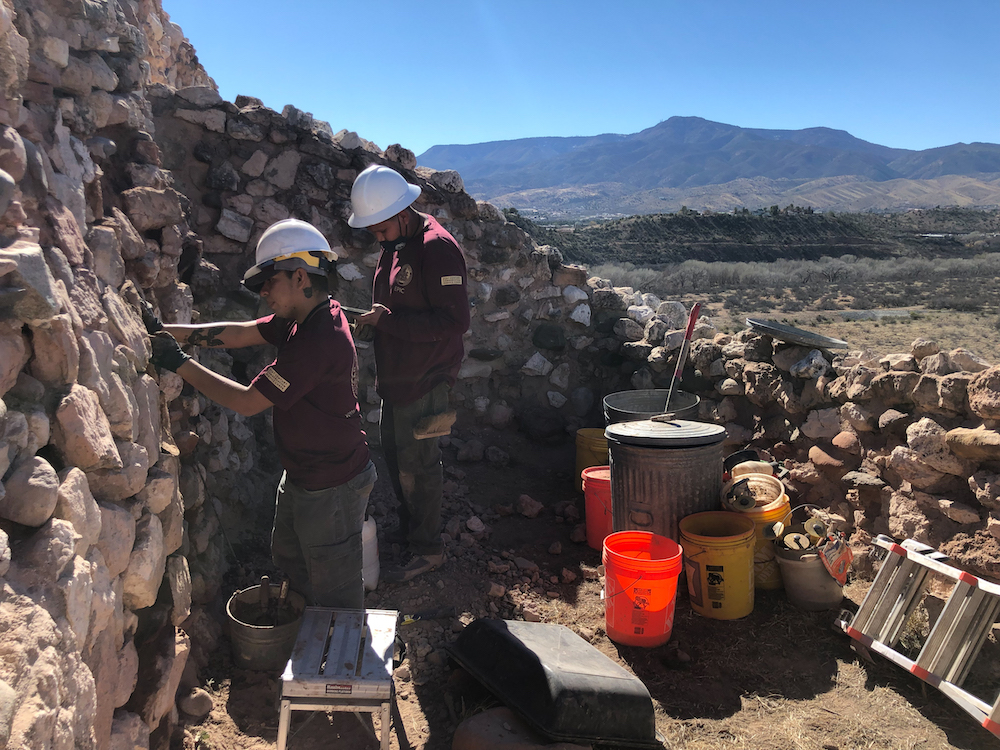
- Details
- By Jenna Kunze
This afternoon, Secretary of the Interior Deb Haaland announced the launch of a new program to train Indigenous youth for jobs in conservation work on public and Native lands.
The Indian Youth Service Corps program, backed by $1 million from the National Parks Foundation and more than $3 million contributed by the Interior Department to various federal agencies, authorizes federally recognized tribes to enter into agreement with qualified youth to carry out conservation projects on eligible service lands.
Projects can focus on research, oral histories, habitat surveys, climate mitigation, trail restoration, invasive species removal, fire fuels reduction, watershed restoration, recreational expansion and the development of educational, and informational or communication materials for the public.
“I learned a deep respect for the natural world from my dad, who made sure I hiked to the top of the mesas, waded in icy cold streams, and that I knew how to bait a hook,” Haaland said in a press call on Friday. “I want everyone to have that profound connection to the great outdoors that I was gifted.”
The Indian Youth Service Corps Program has three main objectives: to perform conservation projects, to expose Indigenous youth from 16 to 30 years old (or 35 years old for veterans) to public service training that are structured to end in employment opportunities, and to stimulate interest among Indignous youth in conservation careers.
New Mexico Congresswoman Teresa Leger Fernández said in the press call that incorporating Indigenous traditional ecological knowledge into conservation efforts is critical for effective stewardship of our nation’s lands and resources.
“With this program, knowledge is going to flow both ways as Indigenous youth share their perspective, and the Department of Interior helps train the next generation,” Rep. Leger Fernandez said.
Brittany Chavarria (Isleta Pueblo) an intern at Valle de Oro National Wildlife Refuge in New Mexico, also spoke on Friday’s call about the importance of becoming involved in public lands for the Indian Youth Service Corps.
“Federal agencies know more about our ancestral homelands than we do and it shouldn't be that way,” she said. “It should be that we are taught the importance of these ancestral homelands from a history aspect and (a cultural one) so we can pay it forward to future generations and make sure that our culture and our tradition don't die with us.”
To learn more about the Indian Youth Service Corps Program guidelines, visit here.
More Stories Like This
Gwich'in Tribal Governments Submit Comments Challenging Fish and Wildlife Service's Inadequate Environmental Review of Arctic Refuge Snow RoadRappahannock Tribe Challenges 9M-Gallon Water Plan
Feds release draft long-term plans for Colorado River management
Apache Leader Walks 60 Miles to Court Hearing That Will Decide Fate of Sacred Oak Flat
Rappahannock Tribe Raises Sovereignty and Environmental Concerns Over Caroline County Water Permit
Help us defend tribal sovereignty.
At Native News Online, our mission is rooted in telling the stories that strengthen sovereignty and uplift Indigenous voices — not just at year’s end, but every single day.
Because of your generosity last year, we were able to keep our reporters on the ground in tribal communities, at national gatherings and in the halls of Congress — covering the issues that matter most to Indian Country: sovereignty, culture, education, health and economic opportunity.
That support sustained us through a tough year in 2025. Now, as we look to the year ahead, we need your help right now to ensure warrior journalism remains strong — reporting that defends tribal sovereignty, amplifies Native truth, and holds power accountable.
 The stakes couldn't be higher. Your support keeps Native voices heard, Native stories told and Native sovereignty defended.
The stakes couldn't be higher. Your support keeps Native voices heard, Native stories told and Native sovereignty defended.
Stand with Warrior Journalism today.
Levi Rickert (Potawatomi), Editor & Publisher

